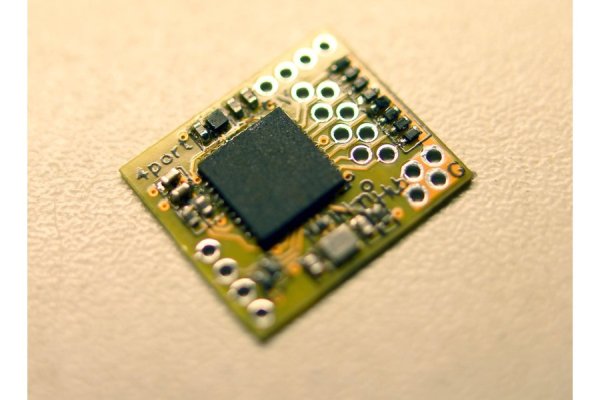A 4-port upgrade to the original NanoHub; an entire 4-port USB hub that is smaller than a USB connector
The NanoHub 4-port is a natural evolution of the original 2-port NanoHub – a truly tiny USB hub to use in the most cramped of spaces. Nanohub 4-port is bigger and better! Even though it boasts twice as many downstream ports (effectively tripling its usefulness; providing 3 extra USB ports instead of just 1), it is only 4mm wider (1/8″). Also, by popular request, ESD protection diodes are included on the input and output ports, meaning you can safely use the NanoHub 4-port with user-accessible ports, where you might zap the port contacts with static electricity. Lastly, the power traces have gotten a slight boost; you can now draw up to 4A on the output ports (combined, sustained).
There is a bit of a downside to all this grunt – the power consumption is considerably higher. If you want to run this on a small battery (e.g. hack it into a phone or tablet, or use it in a battery-powered IoT device), you might want to consider using one or more cascaded 2-port NanoHubs. At full speed with all ports operational and transferring data, it can draw up to 0.8W (average). On an operating system that supports selective suspend (and all attached devices also support this), the average power consumption is well below this, a few hundred mW typically.
Directions for use
This USB hub is really for hacking projects, by people who are comfortable soldering tiny wires. The 4-port NanoHub wires are spaced very close together and require a steady hand to connect up. Because these aren’t properly impedance matched wires, you will not be able to use more than approx. 400mm cable lengths reliably. Also, carefully observe and double-check the polarity of your wires.
Read more: 4-port NanoHub – tiny USB hub for hacking projects

